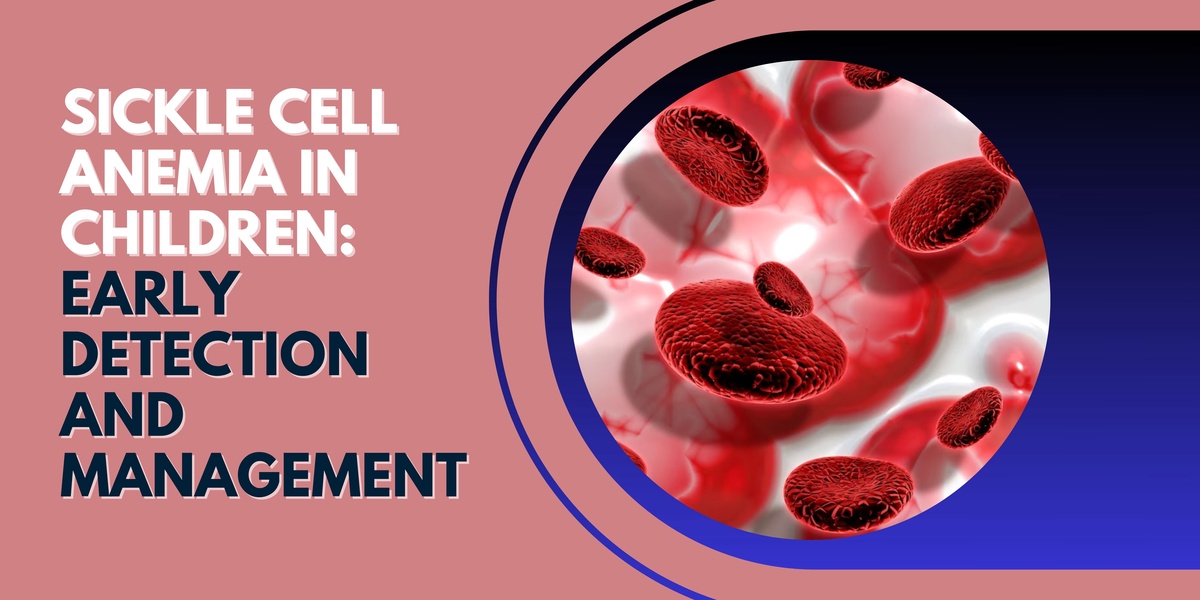Introduction
Sickle Cell Anemia is a genetic blood disorder that affects millions of people worldwide, with a significant portion of those affected being children. Detecting and managing sickle cell anemia in children is crucial for ensuring their health and quality of life. In this blog post, we'll explore the importance of early detection and discuss effective management strategies to improve the lives of children with sickle cell anemia.
Understanding Sickle Cell Anemia
Sickle Cell Anemia is an inherited condition that affects the shape of red blood cells. Healthy red blood cells are round and flexible, allowing them to move easily through blood vessels. In individuals with sickle cell anemia, these red blood cells become rigid and take on a crescent or "sickle" shape. These abnormal cells can block blood flow, leading to pain, anemia, organ damage, and other complications.
Early Detection
-
Newborn Screening: Many countries have established newborn screening programs to detect sickle cell anemia shortly after birth. Early detection allows for timely intervention and management.
-
Family History: Knowing the family's medical history is essential. If there's a family history of sickle cell anemia or related conditions, genetic counseling can help parents understand their risk of having a child with the disease.
-
Regular Check-ups: Children should have regular check-ups with healthcare providers who can monitor their health and look for signs and symptoms of sickle cell anemia.
Managing Sickle Cell Anemia in Children
-
Medications: Various medications can help manage sickle cell anemia, including hydroxyurea, which can reduce the frequency and severity of pain crises.
-
Pain Management: Pain is a common symptom of sickle cell anemia. Managing pain effectively is crucial to improving a child's quality of life. Over-the-counter or prescription pain medications may be necessary.
-
Blood Transfusions: Some children with severe anemia may require blood transfusions to increase their red blood cell count and oxygen-carrying capacity.
-
Bone Marrow Transplant: In some cases, a bone marrow transplant may be a potential cure for sickle cell anemia, but it's a complex procedure with associated risks.
-
Hydration: Staying well-hydrated helps prevent the cells from becoming excessively sticky and clumping together.
-
Avoiding Triggers: Children with sickle cell anemia should avoid extreme temperatures, dehydration, and high altitudes, as these can trigger painful crises.
-
Comprehensive Care: Sickle cell anemia management often involves a multidisciplinary team, including hematologists, pediatricians, pain specialists, and social workers, to provide comprehensive care and support.
Emotional Support
Living with sickle cell anemia can be physically and emotionally challenging. Children and their families may benefit from counseling and support groups to help cope with the emotional aspects of the disease.
Conclusion
Early detection and effective management are essential in improving the lives of children with sickle cell anemia. With advances in medical treatment and support, many children with this condition can lead fulfilling lives and minimize the impact of the disease on their health. Regular medical check-ups, adherence to prescribed treatments, and emotional support can make a significant difference in a child's journey with sickle cell anemia. Education and awareness are also crucial, as they help reduce stigmas associated with the disease and promote better understanding and support within communities. It's important to visit the Best Sickle Cell Hospital in Coimbatore, for treatment options.


No comments yet